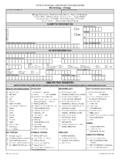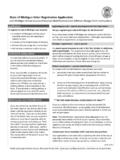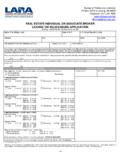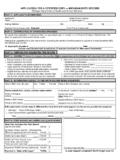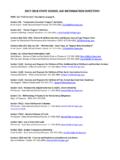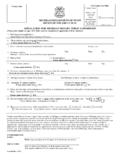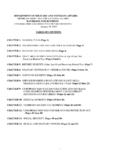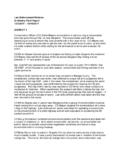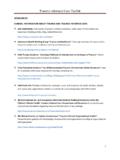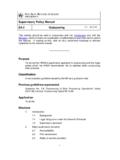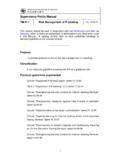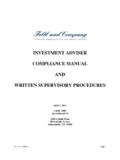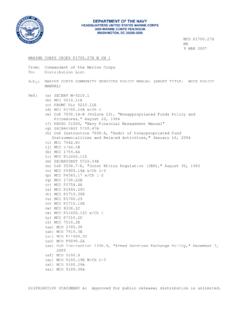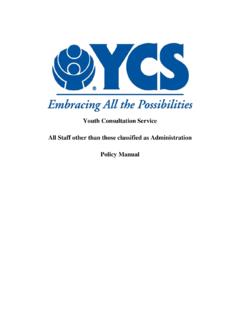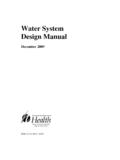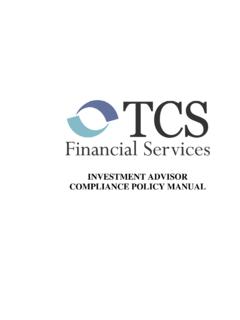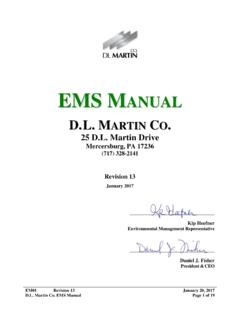Transcription of MPPM Chapter 1 Introduction and Overview of the …
1 1 State of Michigan Michigan Procurement policy manual Issued: 09/16/2015 Revised: 05/01/2017 Chapter 1 Introduction and Overview of the Michigan Procurement policy manual (MPPM) General Overview Management and Budget Act Public Act 431 of 1984 ( ), the Management and Budget Act, establishes the Department of Technology, Management & Budget (DTMB) as the unit of state government charged with providing centralized administrative purchasing services. See MCL of The Management and Budget Act, Public Act 431 of 1984 ( ). Department of Technology, Management and Budget Central Purchasing Office The DTMB created the Central Purchasing Office to provide for the purchase and contracting of all items needed by state agencies.
2 The Central Purchasing Office has the responsibility, in partnership with and in support of department and agency business needs, goals, and mission, to identify and carry out the state of Michigan s procurement laws, rules and regulations, objectives, policy , processes, procedures, training and other programs necessary to effectively and efficiently transact business as required under Public Act 431 of 1984. Purpose and Application of the Michigan Procurement policy manual Purpose The Michigan Procurement policy manual (MPPM) is designed to provide various stakeholders, including procurement professionals, end users, contractors, and taxpayers, a transparent and enterprise-wide standardized procurement policy and process.
3 The MPPM is the official source of policy for all purchases made pursuant to Public Act 431 of 1984. Deviations from Michigan Procurement policy manual In limited situations, a deviation from the MPPM may be necessary where the prescribed policy or procedure is not appropriate. To maintain standardization of process, any deviation must be pre-approved by the Enterprise Procurement Director, or a designee. A request for approval of a deviation must be requested by the state entity s procurement executive. The deviation request and approval must be documented.
4 Department policy must be approved by the Enterprise Procurement Director, or a designee. 2 Michigan Procurement policy manual Revision Process and Communication The MPPM will be updated annually, unless immediate action is required. The procedure for updating the manual will include circulating proposed changes with the Procurement Leadership Team, and through the Administrative Guide review process. Revisions will be posted on the State s public-facing website at the Administrative Guide to State Government ( ,5552,7-150-9131_9347---, ) and on the intranet at Enterprise Procurement ( insidemi/for-your-job/purchasing).
5 Questions Questions or comments concerning the MPPM should be addressed to the Enterprise Procurement Central Office at: Enterprise Procurement Department of Technology, Management & Budget PO Box 30026 525 West Allegan St. Lansing, MI 48909 517-284-7000 855-647-8724 Email: General Information Hyperlinks are imbedded throughout this document. If you find a hyperlink that is not active, please email Michigan Laws Impacting Procurement Michigan Based Business All other things being equal, the state of Michigan must give preference to products manufactured or services offered by Michigan-based firms.
6 See MCL Section ) and Section (http://legislature . ). Clean Corporate Citizen All other things being equal, the state of Michigan must give preference to products manufactured or services offered by facilities designated as clean corporate citizen under part 14 of the natural resources and environmental protection act. See MCL Section ( ) and Section ). Biobased Products All other things being equal, the state of Michigan must give preference to biobased products whose content is sourced in this state. See MCL Section ( ). 3 Reciprocal Preference If a low bid for a State procurement exceeds $100,000, and is from a business located in a state that applies a preference against out of state businesses, Enterprise Procurement must prefer a bid from a Michigan business that meets the criteria in MCL Section ( ) in the same manner in which the out-of-state bidder would be preferred in its home state.
7 Assistance to Local Units of Government Enterprise Procurement assists, on a fee basis, local units of government ( , a city, village, county, township, school district, intermediate school district, nonprofit hospital, institution of higher education or community college, recognized Indian Tribes, and certain designated authorities (a MiDEAL member) through extending of State contracts ( Extended Purchasing ). See MCL Section ( ). Additional information, such as a list of available contracts, and instructions on how to become a member are available on the MiDEAL Extended Purchasing Program internet site ( ).)
8 Qualified Service-Disabled Veteran-Owned Businesses It is the goal of the State to award 5% of total state expenditures for construction, goods, and services to qualified service-disabled veteran-owned businesses. The State provides a 10% pricing preference for businesses owned by qualified-disabled veterans. See MCL Section ( ) and Section ( ). Recycled Supplies, Materials, and Equipment 20% of all supplies, materials and equipment purchased by the State must be made from recycled materials if there is a readily identifiable source or market, and the cost does not exceed 110% of supplies, materials, and equipment not containing recycled materials.
9 Recycled materials includes recycled paper products, structural materials made from recycled plastics, refined lubricating oils, reclaimed solvents, recycled asphalt and concrete, recycled glass products, retreated tires, and ferrous and nonferrous metals containing recycled scrap metals. See MCL Section ( .aspx?mcl-18-1261a). Recycled Paper 50% of the total paper purchased must be made from recycled paper if the cost is not greater than 110% of the cost of paper that does not contain recycled fibers. The State must give preference to wood or paper products that derive from sustainably managed forests or procurement systems that are certified by an independent third party using an identified certificate program.
10 See MCL Section ( .aspx?mcl-18-1261b) and Section ( ). 4 Products Containing Mercury or Mercury Compounds If cost effective, the State will purchase products that do not contain mercury or mercury compounds over those that do. See MCL Section ( ). Prequalified Vendors The State may limit a solicitation to prequalified vendors to meet statutory or licensing requirements applying to the solicitation or when the time necessary to verify vendor qualification would jeopardize timely award of contracts. In those cases, the State may screen potential vendors on a variety of factors including ability, expertise, experience, willingness to accept the State s legal terms, etc.
